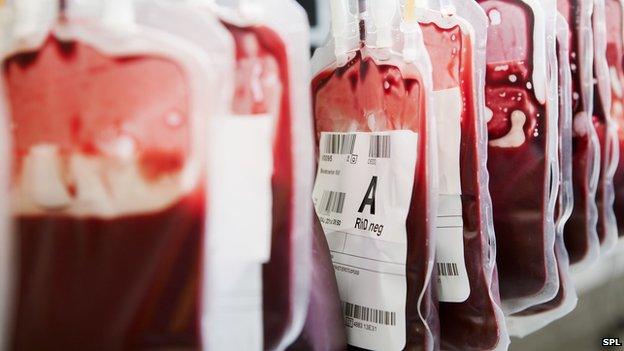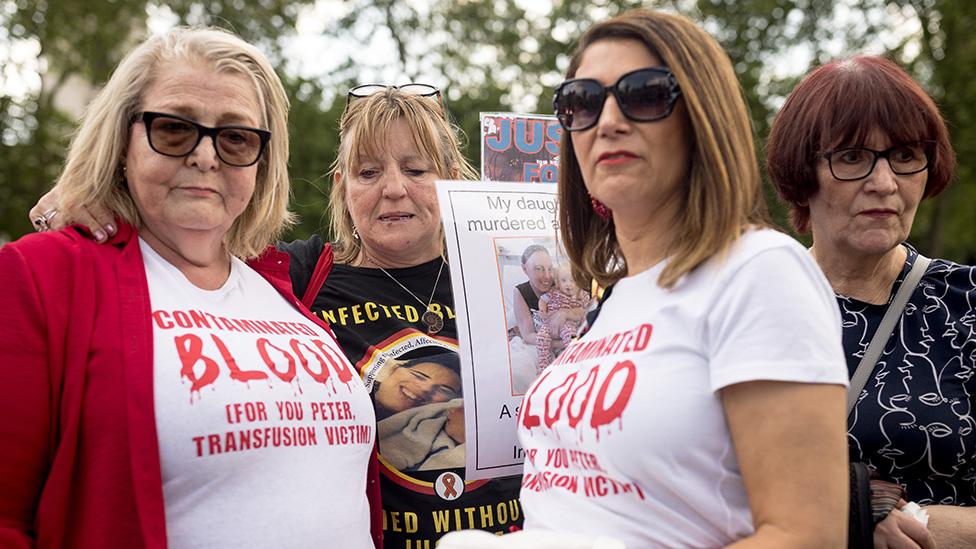Contaminated blood: Psychology service for victims starts
- Published
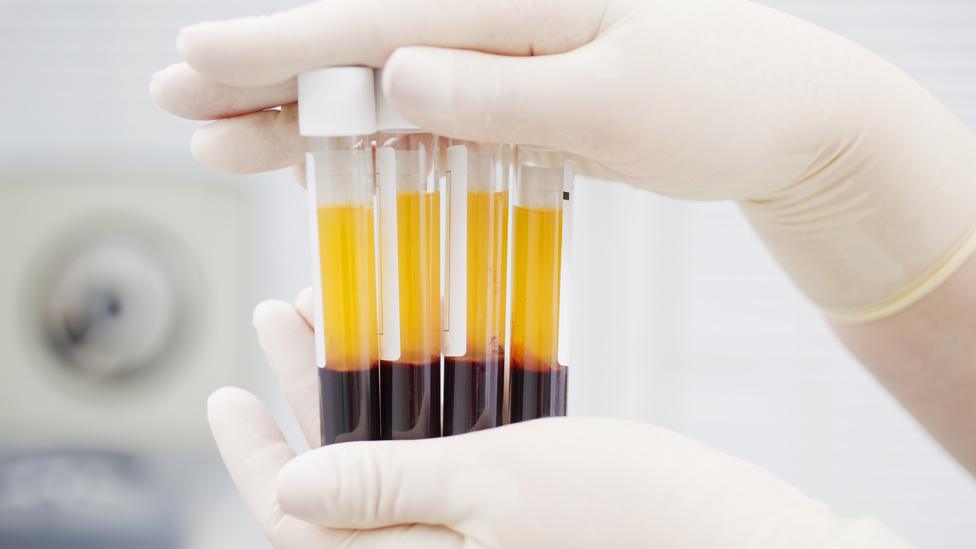
Up to 30,000 people may have been infected with contaminated blood in the UK
A specialist psychological support service for people affected by the contaminated blood scandal has begun.
Thousands of people with haemophilia, including at least 300 from Wales, were infected with hepatitis C or HIV in the 1970s and 1980s through transfusions.
A two-year public inquiry into the scandal began last year.
The Haemophilia Society said it was the first such service run by an infected blood support scheme to be offered in the UK.
The service, part of the Welsh Infected Blood Support Scheme, is funded by the Welsh Government and will offer support to affected people and their families, including those who have already lost family members.
People can self-refer to the service where they will be assessed for a number of different therapy options, including one-to-one counselling.
Counsellor Julia Armytage has set up the service and will be joined by a clinical psychologist for one day a week.
Ms Armytage said: "We don't want to be just another faceless service. We want to promote approachability and will be flexible in what we offer, depending on need."
She said many witnesses at the inquiry had expressed frustration at the lack of help available.
"We understand there is a lot of anger and a lot of resentment. People are being re-traumatised by reliving experiences from their past," she added.
In England, infected recipients and bereaved partners can apply for up to £900 a year for counselling services, if these are is not available through their GP or there is a long wait, but must organise the counsellor themselves.
In Northern Ireland psychological support services have been provided since January 2019, according to the Belfast Health and Social Care Trust.
In Scotland, those affected by the scandal can apply for the Scottish Infected Blood Support Scheme to pay for counselling, but the Haemophiliac Society said take-up had been low.
Last month, Welsh victims of the scandal were described as being "political footballs" over differences in the level of financial support they were receiving compared with people in England.
- Published27 December 2019
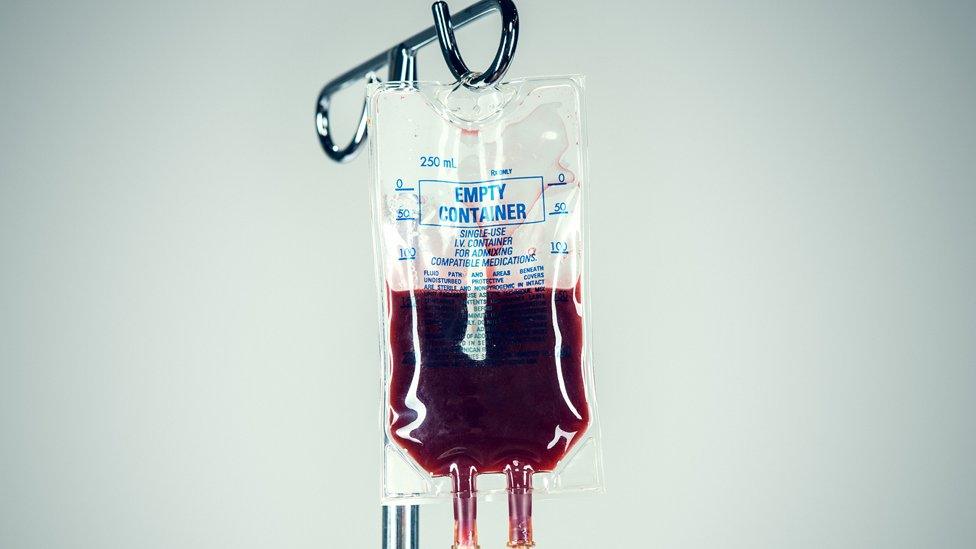
- Published24 July 2019
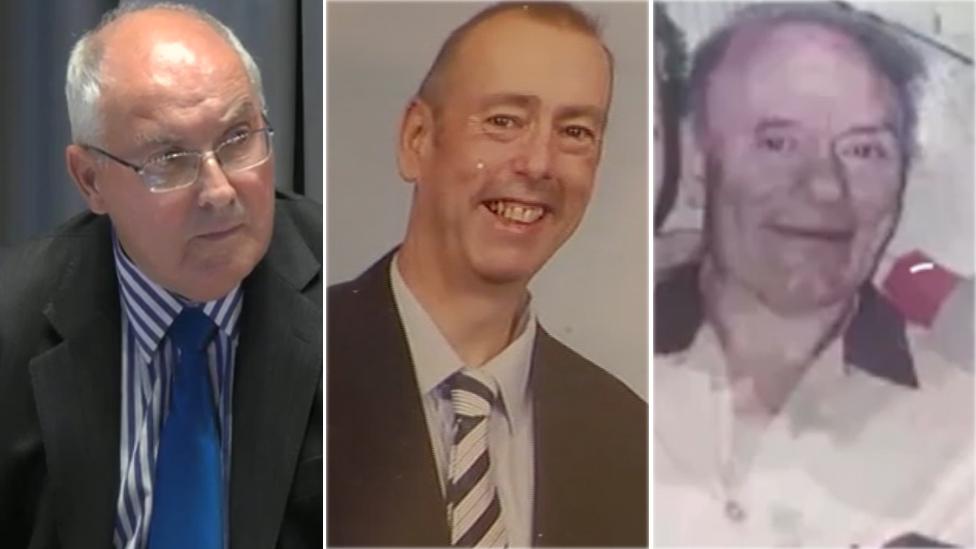
- Published30 April 2019
- Published3 July 2018
